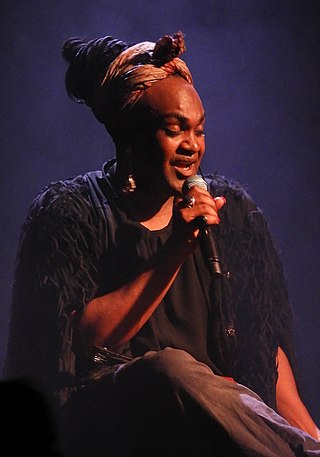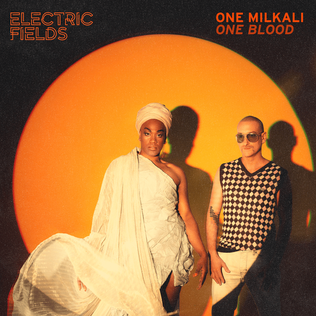Related Research Articles

Aṉangu Pitjantjatjara Yankunytjatjara, also known as APY, APY Lands or the Lands, is a large, sparsely-populated local government area (LGA) for Aboriginal people, located in the remote north west of South Australia. Some of the Aṉangu (people) of the Western Desert cultural bloc, in particular Pitjantjatjara, Yankunytjatjara and Ngaanyatjarra peoples, inhabit the Lands.

Amata is an Aboriginal community in the Anangu Pitjantjatjara Yankunytjatjara Lands in South Australia, comprising one of the six main communities on "The Lands".
Mimili is an Aboriginal community in the Anangu Pitjantjatjara Yankunytjatjara Lands in South Australia, comprising one of the six main communities on "The Lands". At the 2016 Australian census, Mimili had a population of 243.
Umuwa is an Aboriginal community in Anangu Pitjantjatjara Yankunytjatjara in South Australia, serving as an administrative centre for the six main communities on "The Lands", as well as the outlying communities. It is located approximately 250 kilometres (160 mi) north-west of Marla and 460 kilometres (290 mi) south-west of Alice Springs.
Pukatja is an Aboriginal community in the Anangu Pitjantjatjara Yankunytjatjara Lands in South Australia, comprising one of the six main communities on "The Lands".
Indulkana is an Aboriginal community in the Anangu Pitjantjatjara Yankunytjatjara Lands in South Australia, comprising one of the six main communities on "The Lands". At the 2016 Australian census, Indulkana had a population of 256.

Electric Fields is an Australian electronic music duo made up of vocalist Zaachariaha Fielding and keyboard player and producer Michael Ross. Electric Fields combine modern electric-soul music with Aboriginal culture and sing in Pitjantjatjara, Yankunytjatjara and English. The duo have released an EP and several singles. In 2024, they became the first duo to represent Australia in the Eurovision Song Contest, with the song "One Milkali ".
Vincent Namatjira is an Aboriginal Australian artist living in Indulkana, in the APY lands in South Australia. After being a finalist for the Archibald Prize three times, he became the first Indigenous artist to win the prize in 2020 for his work Stand strong for who you are, and his work selected as a finalist or winning entry in a number of other significant art awards. He is the great-grandson of the famous Arrente watercolour artist Albert Namatjira.
Kaylene Whiskey is a contemporary Aboriginal Australian artist. She won the 2018 Sir John Sulman Prize at the Art Gallery of New South Wales and was a finalist for the 2020 Archibald Prize. Her work is exhibited in many important Australian galleries.
Maringka Tunkin is a Pitjantjatjara artist from Central Australia.
Barbara Mbitjana Moore is an Anmatyerre woman who grew up in Ti-Tree in the Northern Territory, moving later to Amata in South Australia's Anangu Pitjantjatjara Yankunytjatjara (APY) Lands. In April 2003, Moore began painting at Amata's Tjala Arts, and, since then, has received widespread recognition. Moore won a National Aboriginal & Torres Strait Islander Art Award in 2012 and has been a finalist in many other years. Moore has also been a finalist for the Wynne Prize.
Mimili Maku Arts, often referred to as Mimili Maku, is an Aboriginal-owned and -led arts centre located in the remote community of Mimili in the Anangu Pitjantjatjara Yankunytjatjara Lands, in the remote north-west of South Australia.
Tuppy Ngintja Goodwin is an Aboriginal Australian artist from South Australia. She is a painter, and director of Mimili Maku Arts.
Betty Kuntiwa Pumani is an Aboriginal Australian artist from Anangu Pitjantjatjara Yankunytjatjara in South Australia. Her paintings have won several awards, including the National Aboriginal & Torres Strait Islander Art Award and the 2017 Wynne Prize for landscape art.

Zaachariaha Rameth Fielding is an Aboriginal Australian musician and artist. He is best known as vocalist in the duo Electric Fields, with keyboard player and producer Michael Ross.

The Ken Sisters also known as the Ken Family Collaborative or Ken Sisters Collaborative are a collective of award-winning Pitjantjatjara artists from the Aṉangu Pitjantjatjara Yankunytjatjara Lands of northern South Australia.
Nyurpaya Kaika Burton OAM is an artist and educator from the Anangu Pitjantjatjara Yankunytjatjara Lands of Central Australia.
Betty Muffler is an Aboriginal Australian artist and ngangkari (healer). She is a senior artist at Iwantja Arts, in Indulkana in Aṉangu Pitjantjatjara Yankunytjatjara, South Australia, known for a series of works on large linen canvases called Ngangkari Ngura .
Sally Scales is an Australian activist and artist. She is an ethnic Pitjantjatjara from Pipalyatjara, South Australia in the northwestern part of the Anangu Pitjantjatjara Yankunytjatjara lands (APY).

"One Milkali" is a song by Australian synth pop duo Electric Fields. It was written by both members of the duo, and has lyrics in English and Yankunytjatjara, an Aboriginal Australian language. It was released on 5 March 2024 through Sony Music Australia. The song represented Australia in the Eurovision Song Contest 2024, and finished in 11th place with 41 points at semi final one.
References
- 1 2 Gralton, Beatrice (26 June 2020). "Robert Fielding" (audio + text). The National. Retrieved 17 December 2024.
- ↑ "Robert Fielding, b. 1969". National Portrait Gallery people. Retrieved 17 December 2024.
- 1 2 3 "Robert Fielding". Glenelg Art Gallery. 10 July 2021. Retrieved 3 August 2022.
- 1 2 "Robert Fielding". Linden New Art. 22 February 2020. Retrieved 3 August 2022.
- 1 2 3 "Robert Fielding". Fondation Opale. 3 January 2019. Retrieved 3 August 2022.
- 1 2 3 4 5 "Robert Fielding". Mimili Maku. Retrieved 3 August 2022.
- ↑ "Mimili". Linden New Art. 19 May 2020. Retrieved 3 August 2022.
- 1 2 "Robert Fielding". National Gallery of Australia . Retrieved 3 August 2022.
- 1 2 3 4 5 6 7 8 9 10 11 12 13 14 15 "Annual Appeal". National Portrait Gallery (Australia) . 29 June 2022. Retrieved 3 August 2022.
- ↑ "Archibald Prize Archibald 2024 work: Mayatja (keeper of song and culture) by Robert Fielding". Art Gallery of New South Wales. Retrieved 8 June 2024.
- ↑ "From Tasmanian cliffs to pig-nosed turtles: $100,000 Hadley's Art prize – in pictures". The Guardian. 2 August 2024. ISSN 0261-3077 . Retrieved 11 August 2024.
- ↑ "Robert Fielding wins the 2024 Bowness Photography Prize". Art Guide Australia. 12 September 2024. Retrieved 13 September 2024.
- ↑ "Ngapartji–Ngapartji, 2023". National Photographic Portrait Prize image. Retrieved 16 December 2024.
- ↑ "Electric Fields' Zaachariaha Fielding wins Ramsay Art fan prize for 'gremlins' painting". ABC News (Australia) . 12 August 2023. Retrieved 16 August 2023.
- ↑ Marsh, Walter (11 December 2018). "South Australian duo Electric Fields star in new SBS documentary". The Adelaide Review . Retrieved 2 January 2024.
- ↑ Tan, Teresa (31 August 2019). "Electric Fields' Zaachariaha Fielding and artist Robert Fielding reflect on Anangu spirit and connection to country". ABC News Australia . Retrieved 2 January 2024.
- ↑ "A Lightness of Spirit is the Measure of Happiness". Australian Arts Review . 3 July 2018. Retrieved 3 August 2022.
- ↑ Digital, Atlas (14 December 2021). "Offsite - 경로를 재탐색합니다 UN/LEARNING AUSTRALIA". ArtSpace . Retrieved 3 August 2022.
- ↑ "Robert Fielding". National Gallery of Victoria Collection Online. Retrieved 17 December 2024.